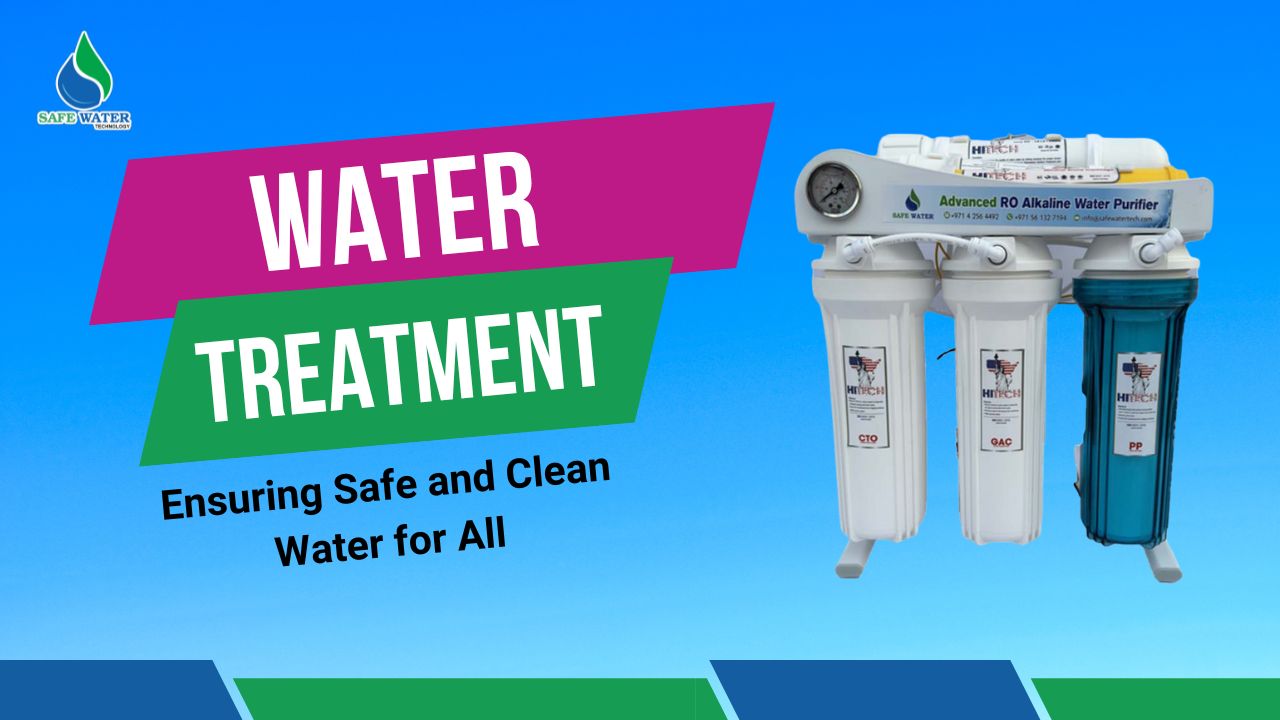Water is a fundamental resource essential for life. From drinking to agricultural irrigation, its quality impacts health, productivity, and the environment. As such, effective water treatment is crucial for ensuring that water is safe and suitable for its intended use. This article explores the key processes involved in water treatment, the challenges faced, and the significance of this vital practice.
Understanding Water Treatment
Water treatment involves a series of processes designed to improve the quality of water to meet specific standards. These processes are employed in both municipal water treatment plants and in smaller-scale systems like those used in households or industries.
1. Screening and Coagulation:
The initial stage of water treatment often begins with screening, where large debris such as leaves and sticks are removed from raw water. Following this, coagulation and flocculation processes are employed. In coagulation, chemicals called coagulants (like aluminum sulfate) are added to the water. These chemicals cause tiny particles to clump together into larger aggregates known as flocs. Flocculation is the gentle stirring that helps these flocs to grow larger, making them easier to remove.
2.Sedimentation:
Once flocs have formed, the water is allowed to sit in sedimentation tanks. During this stage, the heavier flocs settle to the bottom of the tank, forming a sludge layer. The clarified water, which is now largely free of suspended particles, is drawn off the top.
3.Filtration:
The water then undergoes filtration to remove any remaining impurities. This step typically involves passing the water through layers of sand, gravel, and sometimes activated carbon. These materials help trap and remove fine particles, microorganisms, and residual chemicals.
4.Disinfection:
The final stage of water treatment is disinfection, aimed at eliminating harmful microorganisms. Common methods include chlorination, where chlorine is added to the water, and ultraviolet (UV) light, which destroys microbial DNA. Other disinfection methods, like ozonation, may also be used depending on the quality of the water and regulatory requirements.
Challenges in Water Treatment
Despite the effectiveness of these processes, water treatment faces several challenges. Contaminants such as pharmaceuticals, heavy metals, and emerging pollutants require advanced treatment techniques and regular monitoring. Additionally, the growing population and industrial activities exacerbate the strain on water resources, making it necessary to continuously upgrade and maintain water treatment infrastructure.
Climate change also poses significant challenges, as shifting weather patterns and increased frequency of extreme weather events can impact water availability and quality. For instance, heavy rainfall can lead to increased runoff and contamination, while prolonged droughts may reduce water supply.
The Importance of Water Treatment
Water treatment is essential for safeguarding public health and protecting the environment. Contaminated water can lead to a range of health issues, from gastrointestinal infections to more severe conditions like cholera or hepatitis. Effective water treatment helps prevent such outbreaks and ensures that water is safe for consumption and use.
Moreover, proper treatment and management of wastewater help mitigate pollution and protect ecosystems. By removing contaminants before releasing treated water back into natural water bodies, treatment processes play a critical role in preserving aquatic habitats and maintaining water quality in rivers, lakes, and oceans.
Final Words
In summary, water treatment is a complex but vital process that ensures the availability of clean and safe water for various uses. As challenges evolve, continuous advancements and adaptations in treatment technologies are necessary to address emerging contaminants and environmental pressures. Investing in and supporting robust water treatment infrastructure is crucial for sustaining public health and environmental well-being for future generations.
Do you have any questions or would you like to discuss about your water treatment, filtration system and installation, please feel free to contact us now.
